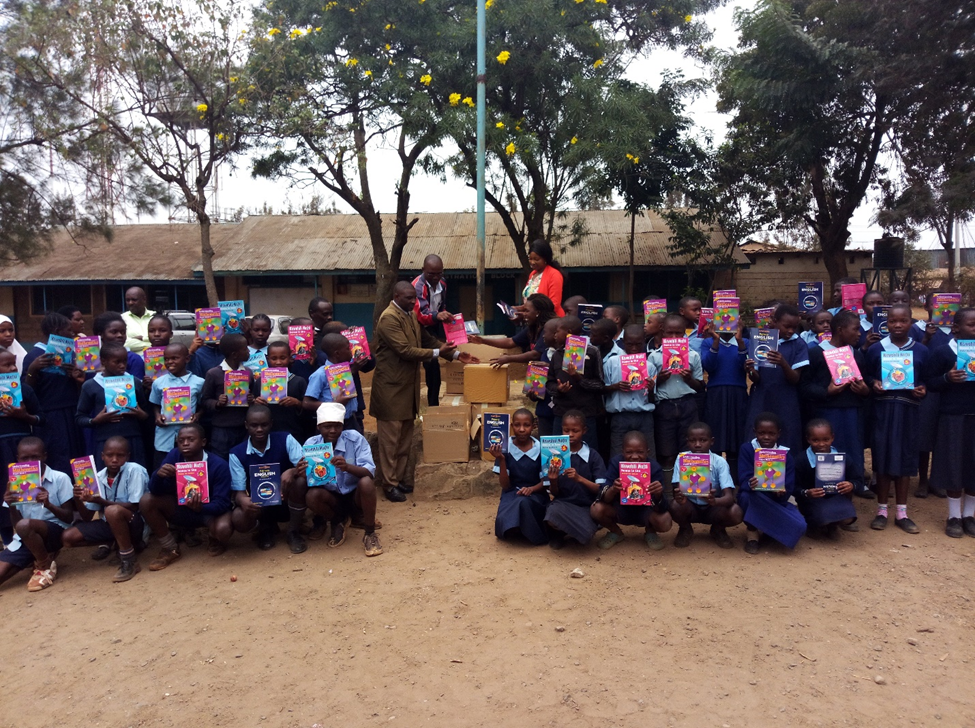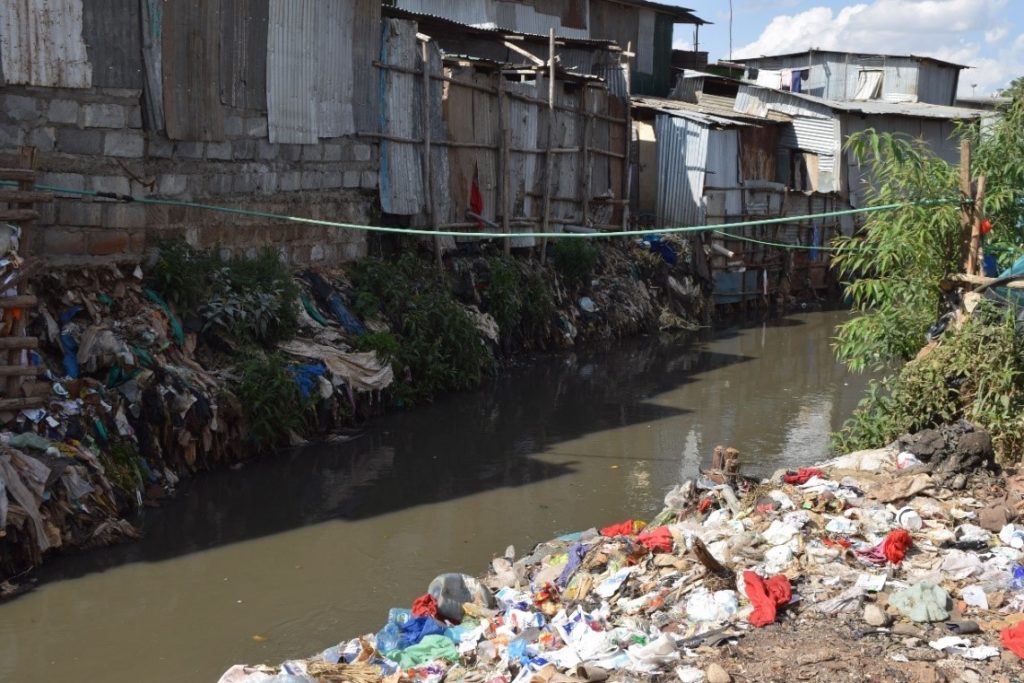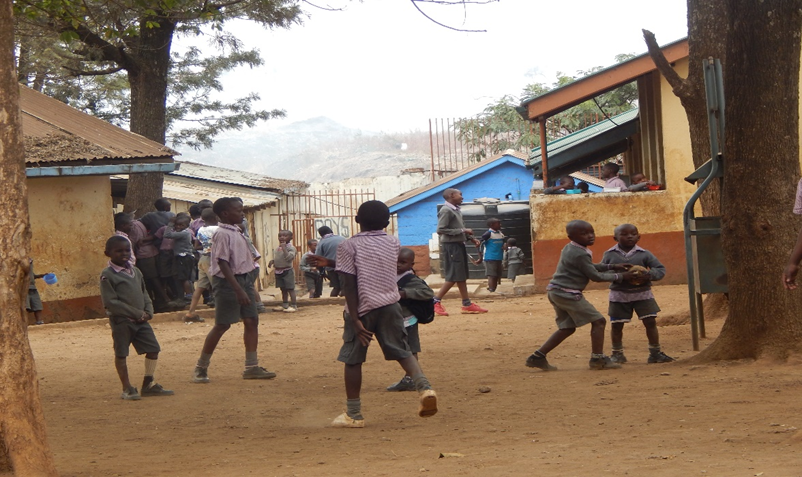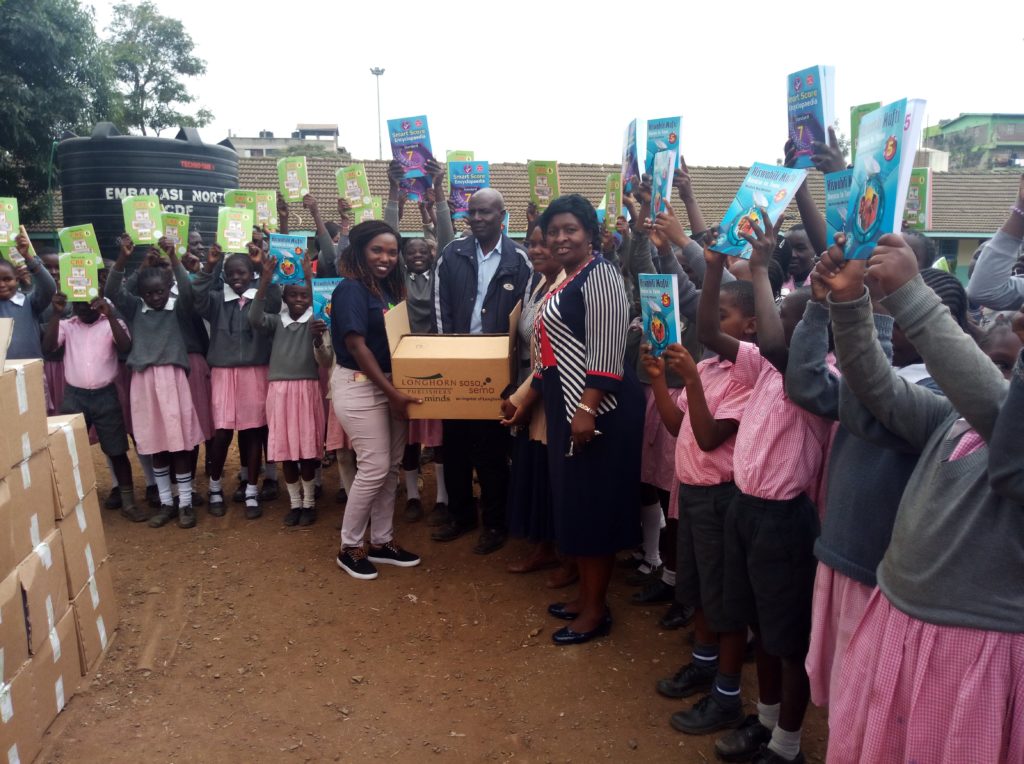The prospect of education in Nairobi’s urban slums comes with a fair share of challenges. In spite of the government’s commitment to the provision of Universal Free Primary Education (FPE) to all children who have attained school-going age, there are numerous segments of the society that continue to face a myriad of hurdles in accessing and participating in basic education. Education is central to sustainable peace and development interventions. In 2019 Shalom-SCCRR implemented 64 educational development projects in East Africa that were a result of its conflict transformation interventions and they, in turn, consolidated peacebuilding processes.

The social economic conditions in the slums are in a dire state. This makes it difficult for pupils and students to acquire basic learning materials such as textbooks, exercise books, and stationery. These children’s families live in conditions that are characterized by sharing of small dilapidated houses, burst sewers, spewing drainage and overcrowded roads. Most schools are run-down and this makes it difficult both for the learners and teachers to make do with the available resources. The pupils are also exposed to other challenges among them drug abuse, gang violence, sexual abuses, radicalization, and inter-ethnic conflicts.

Shalom-SCCRR has been working intensely in Kariobangi and Korogocho slums with community leaders, women leaders, local administration and youth leaders in the last three years to help facilitate positive interactions between communities, by strengthening lines of communication and building trust and providing spaces for dialogue where previously these have been absent.
SCCRR has in the past one year been journeying with 3 schools in Kariobangi and Korogocho in helping them offer a good education to pupils from all ethnic backgrounds in the area. These schools are Ngunyumu primary school, St John Catholic Primary School and Kariobangi North primary school.
- Ngunyumu primary school is located in Korogocho slum, and the school is located next to Dandora dumpsite, the biggest dumpsite in the Kenyan capital city, Nairobi. The school has a population of 755 pupils who are adversely affected by pollution emanating from a 30-year-old dumpsite. This has caused a lot of health implications to both the teachers and the pupils in school.

- St. John Primary School, on the other hand, is also adjacent to the dumpsite with a school population of 626 pupils. The school also suffers from the smoke emanating from the dumpsite. Furthermore, it is threatened by beneficiaries from the dumpsite. The pupil textbook sharing ratio was 10:1 with eight to ten pupils clumping on a desk or tugging the books back and forth. Mr. Odour, a teacher in the school stated that ‘‘Teaching in these classes is a real challenge as it is not easy sharing few textbooks among many pupils.’’
- Lastly, Kariobangi North Primary School a mixed day school in Kariobangi has a population of 625 pupils. The headteacher, Mrs. Jane Njoroge pointed out that ‘‘most of the parents in the school fail to meet their responsibilities owing to poverty, alcohol and drug abuse, and as such fail to appreciate the value of education in their children’s lives’’. This forces most school-going children to engage in different economic activities affecting their school-going process as they have to supplement their family’s income

Last year Shalom-SCCRR provided a larger amount of vital teaching and learning materials to these schools. The provision of textbooks to these schools will boost the teaching and learning environments enhancing: pupil’s enrollment, retention, and improved academic performance. Shalom-SCCRR education and development interventions in inter-religious and inter-ethnic schools are aimed at promoting co-existence through learning and shared schools in areas entrenched by conflict both in urban settlements and among pastoralist communities. Shalom-SCCRR endorses the fourth Sustainable Development Goal, stating that it is in the provision of quality education that school-going children break the cycle of poverty and also subvert today’s difficult realities.
All of these Shalom-SCCRR interventions are ultimately guided towards ensuring conflict transformation and sustainable peace in some of the poorest areas on the planet. No matter where we are in the world, we are all part of the process and the benefits coming down the track! Let us keep other-centered and we will be enriched. God’s Blessings be upon all through us, together!
By Judith Akedi, MA, Shalom-SCCRR Program Officer, Nairobi Project & SCCRR-Shalom Communications Department.

